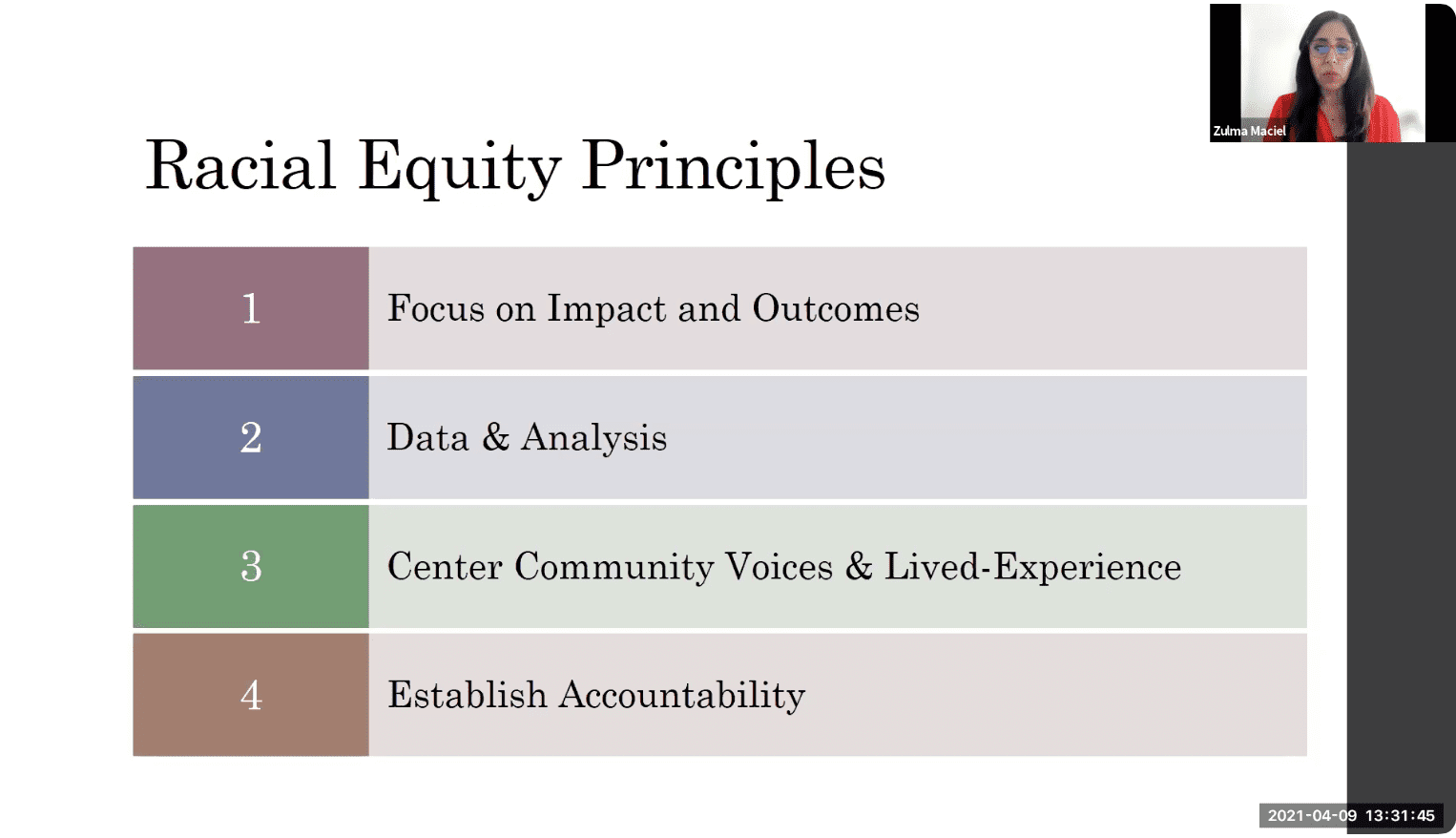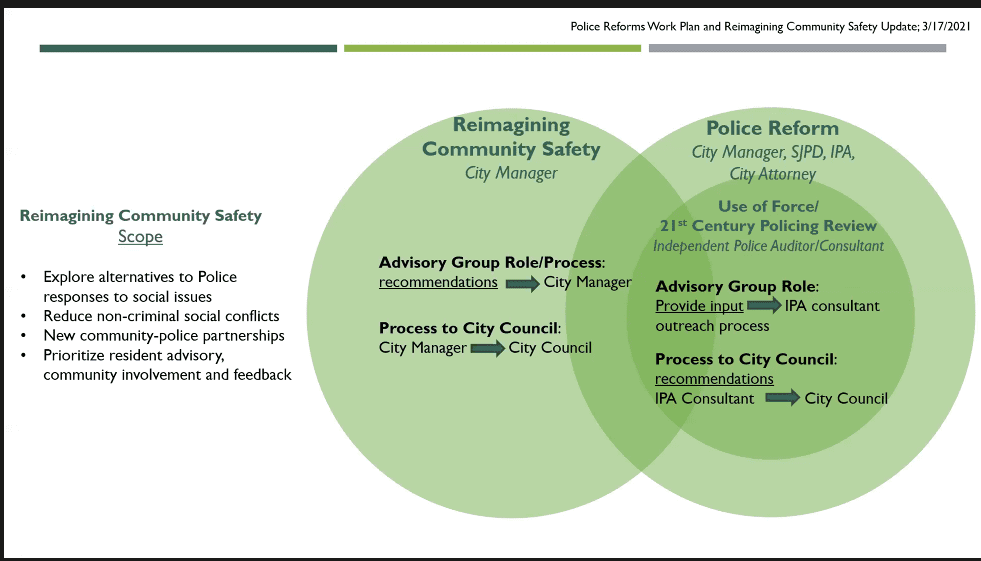The conviction of former Minneapolis police officer Derek Chauvin brings an end to one chapter in the ongoing battle for racial equity. But San Jose’s new community safety advisory group sparked by George Floyd’s murder just began convening.
Three meetings in and discussions over police and community relations already prove to be so divisive among the 45-member group that some fear the heated debates could reach an impasse.
The San Jose City Manager’s Office and the newly-established Office of Racial Equity tapped community leaders to sit on the Reimagining Community Safety Advisory Group, which aims to provide recommendations to the City Council outlining what lawmakers can do to raise public trust.
Initial conversations centered around shared basic values and goals, but missing from the slideshow presentations is a topic that drew leaders into the process in the first place—police.
“There are growing concerns that the actual results of the group will not lead to the needed reforms it was intended to address,” said Peter Ortiz, a member of the Santa Clara County Board of Education.
Deputy City Manager Angel Rios and Office of Racial Equity Director Zulma Maciel guided the first two virtual meetings March 18 and April 9. But by the third meeting on Thursday, Silicon Valley Minority Business Consortium representative Walter Wilson walked from the advisory group, disillusioned by what he described as a lack of attention on any real police reform.
“They’re not talking about changing law enforcement in any real significant ways, it was misleading to me,” Wilson said. “I said in the very first meeting, ‘Listen, don’t get us all up into this thing and waste our time.’”
Several advisory board members described to San José Spotlight a meeting where emotions ran high and already-tense arguments came to a head when one local leader spoke of their positive interactions with police.

Rios said he knew starting a dialogue on community safety with so many stakeholders would invariably lead to disagreements over law enforcement’s role and the extent to which the San Jose Police Department should be reformed. He added that every community in San Jose deserves to be represented in this process. And despite some members voicing frustrations with the pace and direction of the advisory group, Rios isn’t deterred—passionate debate is how issues get addressed and things move forward.
“This is personal for me. I’ve lost family members to poverty, drugs and violence,” Rios told San José Spotlight. “I wish I could make this (process) look prettier, but we wanted to provide a forum for people to start having these conversations, and more importantly to work toward some solutions.”
Disagreements over the meaning of “community safety” and how large a role the San Jose Police Department should play in conversations reflect the diverse experiences advisory group members—including faith leaders, civil rights activists and academics—bring to the table. Each representative bears the responsibility of conveying the desired outcomes of their constituency, while at the same time sharing one fundamental goal—reimagining community safety.
Ortiz said he will continue with the panel as long as they can out of respect for their constituencies and fellow panelists. But also the attention needs to be on systemic police reform and that the police department shouldn’t have a hand in shaping the proposals that end up on the mayor’s desk.
San Jose State Human Rights Institute founder William Armaline said he would join a new formation of the group with increased authority to carry out police reform, but as it stands, he will be exiting alongside Wilson and other group members.

Sacred Heart Community Service Executive Director Poncho Guevara said he expects the advisory group will start making more progress as meetings continue until recommendations are finalized in September. He hopes to bring up the topic of mental health emergencies.
“Law enforcement is oftentimes called upon as the response to different types of social conditions,” Guevara said. “We could probably better utilize precious resources to have appropriate community responders to situations.”
In an effort to address advisory group concerns, Rios created a concentrated subgroup tasked solely with handling police reform recommendations that will involve the city manager’s office, the city attorney’s office, the Independent Police Auditor—and SJPD.
“How do you facilitate cultural change in an organization unless you include the very people that are involved with it?” Rios said. “Of course it will involve police, but at the end of the day it’s still subject to the final approval of the mayor and council. So it’s not like the chief or the police department themselves will be the final OK.”
The fourth Reimagining Community Safety Advisory Group meeting date has yet to be released, but will be made publicly available on the San Jose city calendar.
Contact Vicente Vera at [email protected] or follow him @vicentejvera on Twitter.



Leave a Reply
You must be logged in to post a comment.